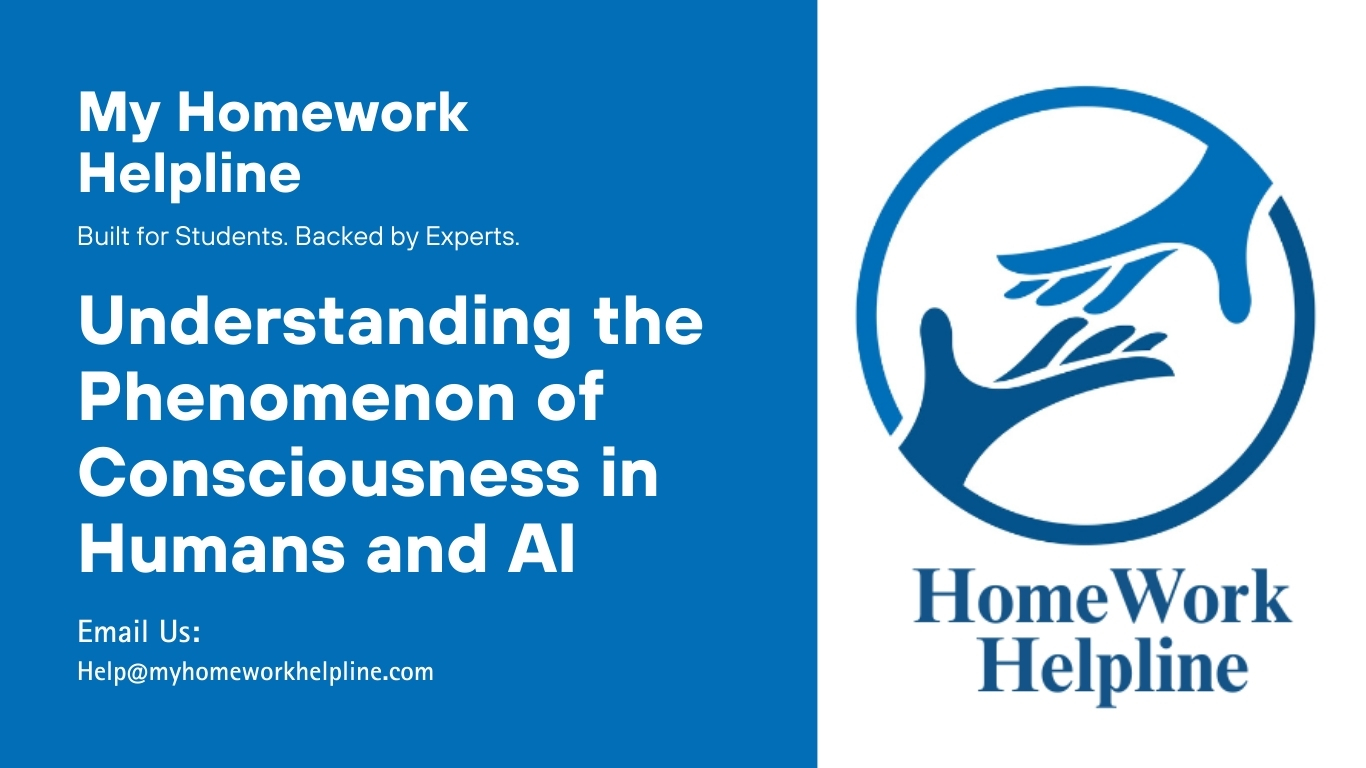Phenomenon of Consciousness: Human vs Artificial Intelligence
Article Link: https://www.frontiersin.org/articles/10.3389/fpsyg.2019.01535/full
Introduction
Phenomenal consciousness refers to the feeling an individual has to be self. Recently, the development of robots has advanced at a faster pace. The article was ideal as there has been a debate about whether machines can have consciousness. The rise of Artificial intelligence has led to the argument about the possibility of machines having consciousness.
Need expert help with your psychology assignments or homework on the phenomenon of consciousness? Our team offers detailed, human-written guidance to help you analyze topics like human awareness, artificial intelligence, and cognitive states. Get well-researched solutions and insights for your essays and projects by visiting our psychology homework helpline today for professional assignment help, homework assistance, and research support.
Article Review
An article by Hildt (2019) bases the argument of consciousness on artificial consciousness. The article view devices with the right computer programs can be stated to have cognitive states. Such devices are based on strong artificial intelligence. What is interesting is that decades ago, people never viewed machines as devices that can have consciousness. Additionally, artificial intelligence is accessible to humans from a third-person perspective, making the debate about whether machines can have cognitive states more complicated. Human consciousness is viewed from a first-person perspective, contrary to artificial intelligence.
The description of artificial intelligence does not rely on phenomenal consciousness as it is viewed from a third perspective. This raises the debate for machines to be able to learn from their experiences to be cognizant of their environment. On the other hand, the article bases artificial consciousness on adaptation at the system level. Therefore, artificial consciousness can also be based on access consciousness.
Conclusion
An article by Hildt (2019) was of interest based on its argument on artificial intelligence and consciousness. The author argues that human consciousness was based on the first-person view whereas artificial consciousness was based on the third-person view of consciousness. Machines will be associated with the phenomenon of consciousness suppose they will be able to learn from their experiences. Machine learning, an aspect of artificial intelligence, has led to considering AI in the sense of the phenomenon of consciousness.
Reference.
Hildt, E. (2019). Artificial intelligence: Does consciousness matter? Frontiers in Psychology, 10, 1535.

